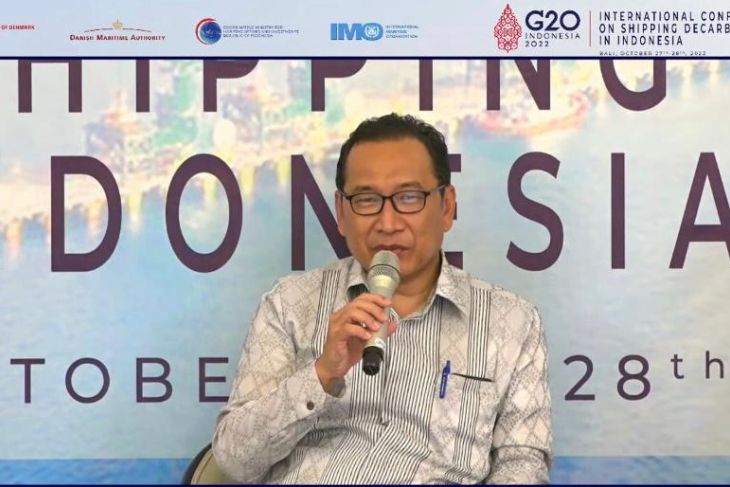G20 Indonesia
October 29, 2022

Arif Toha, Director General of Maritime Transport, Ministry of Transport, G20 Side Event: International Conference on Decarbonisation of Transport in Indonesia in Bali. Antara/Ho-Dietzen Perhubungan Laut, Kemenhab/Fr
The Department of Transport continues to rationalize the development of a competitive shipping sector in line with the National Port Master Plan (NPMP), it said in a statement on Saturday.
The G20 is a multilateral cooperation group consisting of 19 countries and the European Union (EU). Indonesia will lead the group this year and will host the G20 summit in Bali in November.
Related news: Indonesia raises targets to reduce greenhouse gas emissions
According to the order of the Minister of Transport No. KP 432 of 2017, currently there are 636 ports that serve maritime transport, 57 terminals that are part of ports and 1322 urban plans.
About 1242 ports in Indonesia are actively pursuing sustainable economic development.
On January 1, 2013, mandatory measures to reduce greenhouse gas emissions from international transport began.
This includes all new ships over 400 gross tonnage designed to achieve an energy efficiency index (EEDI) below the standard.
In addition, all ships must have and implement a Ship Energy Efficiency Management Plan (SEEMP) using the Operational Energy Efficiency Indicator (EEOI) as a monitoring tool and benchmark.
Related news: The multidisciplinary program will not have a negative impact on forests - the ministry
According to Toh, under the original 2018 IMO Greenhouse Gas Strategy, the goal is to reduce greenhouse gas emissions by 40 percent in 2030 and 70 percent in 2050.
In addition, the International Maritime Organization (IMO) has as its main goal the reduction of greenhouse gas emissions and sets a vision that supports the IMO's commitment to the reduction and phasing out of emissions from international shipping.
Half the world's countries have declared net zero emissions by 2050, he said, but Indonesia, Russia, China, Saudi Arabia, Ukraine, Sri Lanka, Nigeria and Bahrain have committed to net zero emissions by 2060.
The shipping subsector's efforts to achieve this goal include improving port management through the use of SBNP solar panels and land-based thermal power plants in 21 ports.
Other efforts include modernizing ships with biofuel, saving energy on ships and in ports, and developing eco-ports through the use of renewable energy sources in ports, ie. B. Solar power plant.
In addition, Indonesia is actively developing cooperation with other countries through the IMO Technical Cooperation Program, which includes a blue solution to reduce greenhouse gas emissions through technology, he said.
Related news: Indonesia raises targets to reduce greenhouse gas emissions
Related news: Ministry aims to reduce emissions by 231.2 million tonnes by 2025



